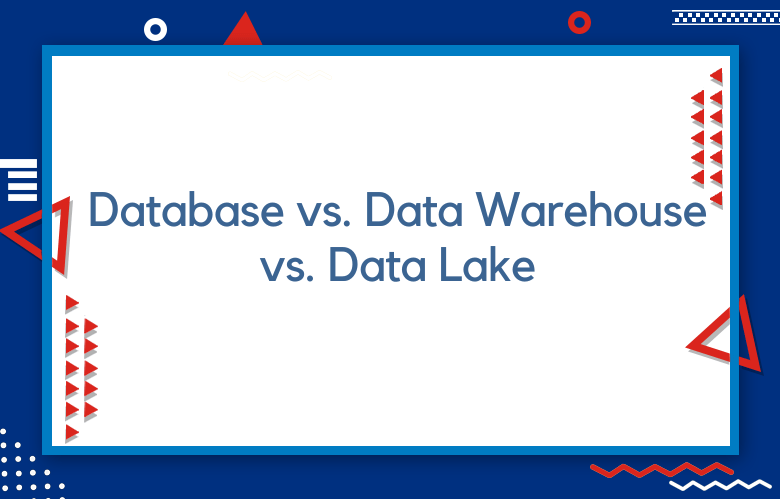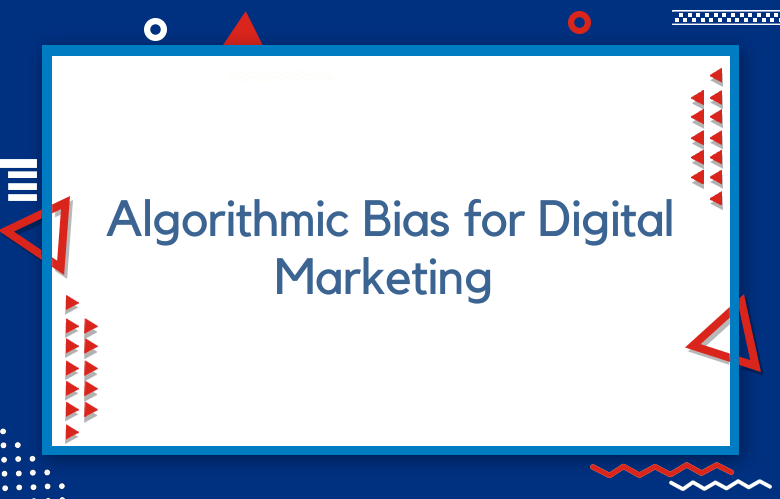Database vs. Data Warehouse vs. Data Lake in Digital Marketing

If you’re involved in digital marketing, you’ve likely come across the terms database, data warehouse, and data lake. All three are essential components of a successful digital marketing strategy. However, critical differences between them can impact your approach to data management. Let’s examine each term’s meaning and how it might use in your digital marketing plan.
A database is a system for capturing and recording data. It can be used for live, real-time data or more detailed information.
A data lake is designed to capture any raw data. It is made for large amounts of data and can be helpful for machine learning projects.
A data warehouse is designed for analytical processing. Data is summarized in a warehouse for analysis and generally has historical information.
What is a Database?
At its most basic level, the database stores large amounts of structured data (i.e., data organized into tables with specific fields).
The purpose of the database is to make it easier for users to access and manipulate this data.
This makes it an ideal solution for businesses or organizations needing to access certain information regularly and quickly.
Popular databases include Oracle, MySQL, and Microsoft SQL Server.
A database is a structured collection of information. It stores data in tables that are organized by columns and rows.
Databases store customer information such as names, emails, addresses, phone numbers, etc.
This data can be easily accessed and updated when needed.
Databases are great for storing small amounts of data that needn’t be analyzed.
A database is an organized collection of structured information that can be accessed electronically.
Databases often store customer or user information such as email addresses, contact information, purchase history, etc.
This type of customer data allows marketers to better target their audiences with relevant messages encouraging them to take action (e.g., purchase).
What is a Data Warehouse?
A data warehouse essentially extends a database, but with one key difference: it stores only historical data. All the information stored in a data warehouse was gathered from past events or transactions.
As such, it can be used to track trends or identify correlations between events that might not have been immediately evident when they happened.
Common examples of data warehousing include customer relationship management (CRM) and enterprise resource planning (ERP).
A data warehouse is a repository for large amounts of structured or semi-structured data from multiple sources.
These sources include databases, flat files, logs, APIs, etc.
Data warehouses allow companies to store massive amounts of data over long periods, making them ideal for analytics applications like predictive modeling or customer segmentation.
However, they can be difficult to update, so they should only use if long-term storage and analysis are required.
A data warehouse is a repository for a company’s structured data collected over time.
It stores this data in one location, making it easier for marketers to analyze trends and patterns to gain insights about their customers and users.
Marketers can identify customer segments by analyzing this historical data and creating targeted campaigns to increase conversion rates.
What is a Data Lake?
A data lake is similar to a database in that it stores large amounts of structured or unstructured data—but there are some key differences.
Unlike databases and warehouses where the data structure is predetermined and therefore limited by design, a “data lake” allows users to add new types of unstructured information without any prior planning or construction—thus allowing for greater flexibility and scalability over time.
While traditional databases use Structured Query Language (SQL) as their primary search tool, data lakes use more modern analysis tools like Apache Hadoop or Apache Spark for searches.
A data lake is similar to a data warehouse, but it allows for unstructured or semi-structured data to be stored along with structured data in one location.
Data lakes offer more flexibility than traditional databases or warehouses because users can quickly access information without reorganizing the underlying structure.
New datasets can be added quickly without disrupting existing workflows or systems.
This makes them great for gathering real-time insights about customers and trends so companies can react quickly to industry or market space changes.
A data lake is similar to a data warehouse. Still, instead of only storing structured data (data with labels), it also stores unstructured (data without tags) or semi-structured (partially labeled) data.
This type of stored information includes weblogs, audio files, video files, images, etc., which can use to gain insights into customer behavior and preferences and identify areas where improvement may be needed.
Digital Marketing Database
Digital marketing promotes a brand or product through electronic channels such as the Internet, social media, and email.
The purpose of digital marketing is to reach a target audience and generate leads or sales.
A digital marketing database is a tool that helps businesses track their progress and measure the effectiveness of their digital marketing campaigns.
A digital marketing database can help businesses track the following:
- The number of website visitors
- The number of leads generated from online campaigns
- The amount of revenue generated from online campaigns
- The cost per lead for different online campaigns
- The price per sale for various online campaigns
- A digital marketing database is a collection of data that can be used to improve digital marketing efforts.
- The data in a digital marketing database can come from various sources, including social media, website analytics, and customer data.
- The digital marketing database data can be used to improve marketing campaigns, website design, and customer service.
- A digital marketing database can be a valuable tool for businesses that want to improve their digital marketing efforts.
Digital marketing databases are a great way to store and manage digital marketing campaigns and information.
They can provide a single location to store your digital marketing materials, including images, videos, and text.
Digital marketing databases can help you track your campaigns’ success by providing detailed analytics of your content’s performance.
- A digital marketing database is a collection of data that can be used to improve digital marketing efforts.
- The data in a digital marketing database can come from various sources, including surveys, social media posts, and website analytics.
- Marketers can identify trends and optimize their campaigns by analyzing this data.
- A digital marketing database can also help marketers target their advertisements more effectively.
- Businesses can use a digital marketing database to improve their return on investment for their digital marketing campaigns.
Digital Marketing Data Warehouse
Today’s businesses are utilizing digital marketing data warehouses to manage and make decisions about their marketing efforts.
A digital marketing data warehouse is a system that stores all of a company’s digital marketing data in one place.
This includes data from websites, social media, and email marketing campaigns.
By having all this data in one place, businesses can more easily track the success of their marketing campaigns and make changes as needed.
A digital marketing data warehouse can help businesses identify trends and effectively target potential customers.
Digital Marketing Data Warehouse
- A data warehouse is a system that stores data in a way that makes it easy to access and analyze.
- A data warehouse usually stores data collected from multiple sources.
- A data warehouse can be used to store data from digital marketing campaigns.
- A data warehouse can be used to analyze the results of digital marketing campaigns.
A digital marketing data warehouse is a system that stores and analyzes data collected from digital marketing channels. This data can include information about website visitors, email subscribers, social media followers, and other aspects of digital marketing.
A data warehouse can help you understand how your digital marketing efforts are performing and identify areas for improvement.
A digital marketing data warehouse is a system that centralizes all the data for a company’s digital marketing operations. This can include data from website analytics, email marketing, social media, and paid advertising campaigns.
Having all this data in one place makes it easier to analyze how well different digital marketing channels perform and decide where to allocate resources.
A digital marketing data warehouse can also help identify opportunities for improvement and optimize campaigns accordingly.
Digital Marketing Data Lake
A data lake is an extensive storage repository that holds vast amounts of raw data in its native format until needed.
This format could be text, images, audio files, or any other data type.
The main benefit of using a data lake is that it allows businesses to store all their data in one place, regardless of the format.
This makes it easy to access and query when needed.
A data lake can be used for various purposes, such as data analysis, business intelligence, and marketing.
Digital marketing promotes products or services through digital channels such as the Internet, social media, email, and mobile apps.
Data lakes are becoming increasingly popular for digital marketing as they provide a way to store all the data associated with a campaign in one place.
This makes it easy to analyze and report on the campaign’s performance.
A digital marketing data lake is a company’s digital marketing data repository.
This data can include website traffic, social media, email marketing, and more.
A digital marketing data lake can help businesses better understand their customers and improve their marketing campaigns.
A digital marketing data lake is a storage repository for all the digital marketing data that a company gathers.
It can include data from website visits, email campaigns, social media interactions, and more.
This data can be used to analyze customer behavior, understand what marketing strategies are working, and identify opportunities for improvement.
There is a lot of potential in digital marketing data lakes. Lakes are a great way to store and process large data sets; they can improve marketing performance with the right tools.
Lakes are a great way to store and process large data sets. This is because lakes can accommodate a variety of data formats, and they can be easily accessed and processed using the right tools.
This makes Lakes an attractive option for digital marketers. Data lakes can improve marketing performance by helping marketers better understand their customers and target audiences.
They can also be used to identify new opportunities and optimize marketing campaigns.
Digital Marketing with Data
Digital marketing with data is using data to inform marketing decisions. It can include using data to understand customer needs and preferences, as well as using data to track the success of marketing campaigns.
Using data, digital marketers can make more informed decisions about marketing tactics and how to optimize their campaigns for better results.
Digital marketing with data is more targeted and effective than other forms of digital marketing.
By understanding customer behavior and needs, businesses can deliver more relevant and customized content that will likely result in a sale.
Data-driven digital marketing allows businesses to track the success of their campaigns and make necessary adjustments to improve results.
- Digital marketing is marketing your product or service through digital channels like the Internet, social media, and email.
- Data is essential for digital marketing. It would be best if you reached them.
- Marketing data can help you decide better where to allocate your marketing resources.
- It can also help you measure the effectiveness of your marketing campaigns and optimize your strategies over time.
- You must use the right tools and techniques to get the most out of your data.
- You must first understand your audience to create an effective digital marketing strategy.
- Use data to help identify your target audience and understand their needs.
- Tailor your marketing messages and content to meet the needs of your target audience.
- Use data to track the success of your digital marketing campaigns and make adjustments as needed.
Benefits of Using a Database in Digital Marketing
- A database can help you keep track of your customer’s information.
- You can use a database to segment and target your customers with specific marketing messages.
- A database can help you track your customer’s purchase history.
- You can use a database to create customized marketing campaigns for your customers.
- A database can help you track customer interactions with your brand.
- You can use a database to create targeted email marketing campaigns.
- You can use a database to track your customer’s social media activity.
- You can use a database to create targeted ads for your customers.
- A database can help you track your customer’s web browsing history.
- You can use a database to track your customer’s search engine activity
- A database can help you keep track of your customers’ contact information.
- A database can help you segment your customers based on their interests and demographics.
- A database can help you personalize your marketing messages to each customer.
- A database can help you automate your marketing campaigns.
- A database can help you track the results of your marketing campaigns.
- A database can help you optimize your marketing campaigns for better results.
- A database can help you reduce your marketing costs.
- A database can help you improve your customer service.
- A database can help you increase your sales and revenue.
- A database can help you segment your audience.
- A database can help you track customer behavior.
- A database can help you target your marketing efforts.
- A database can help you create personalized marketing messages.
- A database can help you track the results of your marketing campaigns.
- A database can help you optimize your marketing budget.
- A database can help you identify new marketing opportunities.
- A database can help you measure customer satisfaction.
- A database can help you improve customer retention.
- A database can help you build brand loyalty.
Benefits of Using a Data Warehouse in Digital Marketing
- A data warehouse can help you store and organize large amounts of data.
- A data warehouse can help you track customer behavior over time.
- A data warehouse can help you segment your customers.
- A data warehouse can help you target your marketing campaigns.
- A data warehouse can help you measure the ROI of your marketing campaigns.
- A data warehouse can help you track your website’s and digital channels’ performance.
- A data warehouse can help you optimize your website for conversions.
- A data warehouse can help you create custom reports and dashboards.
- A data warehouse can help you automate your marketing processes.
- A data warehouse can help you scale your digital marketing efforts.
- A data warehouse can help you collect and store data from various sources.
- A data warehouse can help you track customer behavior over time.
- A data warehouse can help you segment your customers based on their behavior.
- A data warehouse can help you effectively target your marketing campaigns.
- A data warehouse can help you track the ROI of your marketing campaigns.
- A data warehouse can help you optimize your website for conversion.
- A data warehouse can help you personalize your website and marketing campaigns for each customer.
- A data warehouse can help you automate your marketing campaigns.
- A data warehouse can help you create custom reports and dashboards.
- A data warehouse can help you make better decisions about your digital marketing strategy.
- A data warehouse can help you to store and organize your marketing data in one central location.
- A data warehouse can help you to track customer behavior over time.
- A data warehouse can help you to segment your customers based on their behavior.
- A data warehouse can help you understand the most effective marketing channels.
- A data warehouse can help track your marketing campaign’s ROI.
- A data warehouse can help you to allocate your marketing budget more effectively.
- A data warehouse can help you to plan future marketing campaigns more effectively.
- A data warehouse can help you monitor your marketing team’s performance.
- A data warehouse can help you identify improvement opportunities in your marketing strategy.
- A data warehouse can help you make better decisions about your marketing strategy.
Benefits of using a Data Lake in Digital Marketing
- A data lake can help digital marketers to collect and store large amounts of data more efficiently.
- A data lake can help digital marketers to better understand customer behavior by providing a centralized repository for customer data.
- A data lake can help digital marketers target their marketing efforts more effectively by providing access to detailed customer data.
- A data lake can help digital marketers save time and money by reducing the need for manual data entry and storage.
- A data lake can help digital marketers improve their data quality by providing a single source of truth for customer information.
- A data lake can help digital marketers comply with regulations such as the General Data Protection Regulation (GDPR) by providing a secure repository for customer data.
- A data lake can help digital marketers scale their marketing efforts by allowing them to add new customer data sources easily.
- A data lake can help digital marketers protect their customer data by providing a secure, centralized repository for storing it.
- A data lake can help digital marketers share customer data with other departments, such as sales or customer service.
- A data lake can help digital marketers to keep their customer data organized and accessible by providing a central repository for it.
- A data lake can help you collect and store large amounts of data more efficiently.
- A data lake can help you process and analyze data more quickly and effectively.
- A data lake can help you gain insights into customer behavior that you couldn’t obtain through other means.
- A data lake can help you effectively target your marketing efforts.
- A data lake can help you save money on marketing campaigns by reducing the need for manual labor.
- A data lake can help you improve the ROI of your marketing campaigns.
- A data lake can help you track and measure the performance of your marketing campaigns more effectively.
- A data lake can help you optimize your marketing campaigns in real-time.
- A data lake can help you identify opportunities for new marketing initiatives.
- A data lake can help you collect and store large amounts of data.
- A data lake can help you organize and structure your data.
- A data lake can help you analyze your data.
- A data lake can help you visualize your data.
- A data lake can help you share your data.
- A data lake can help you track your data.
- A data lake can help you monitor your data.
- A data lake can help you control your data.
- A data lake can help you manage your data.
Conclusion
While all three storage solutions have advantages and disadvantages for digital marketers, the most important takeaway is that understanding how each works can help you develop better strategies for managing your organization’s growing amount of customer-related information.
By knowing what type of storage solution should be used in different situations, you can make more informed decisions when collecting customer-related analytics and ensure that your customers remain satisfied with the quality service they receive from your company.
Understanding how each type works will help you create better business strategies overall.
Understanding the differences between databases, data warehouses, and data lakes isis essential for digital marketers looking to manage customer information and draw meaningful insights from it effectively.
Each type serves its distinct purpose but can also be combined for maximum efficiency when done correctly.
Choosing which type(s) you should use will depend on your specific needs, but understanding each will help you assess your options and make an informed decision moving forward!
Any organization that wants to stay ahead of the competition needs an efficient digital marketing operation.
Whether to use a database, data warehouse, or data lake is crucial in ensuring the success of the digital marketing campaign.
All three have advantages and disadvantages that must be carefully considered before making a choice. Digital Marketing Consulting can help you determine the best for your business and guide you through setting it up. Contact us today for a free consultation!
Call: +91 9848321284
Email: [email protected]



